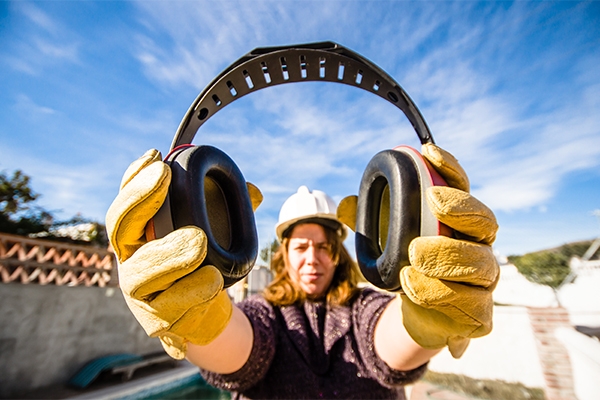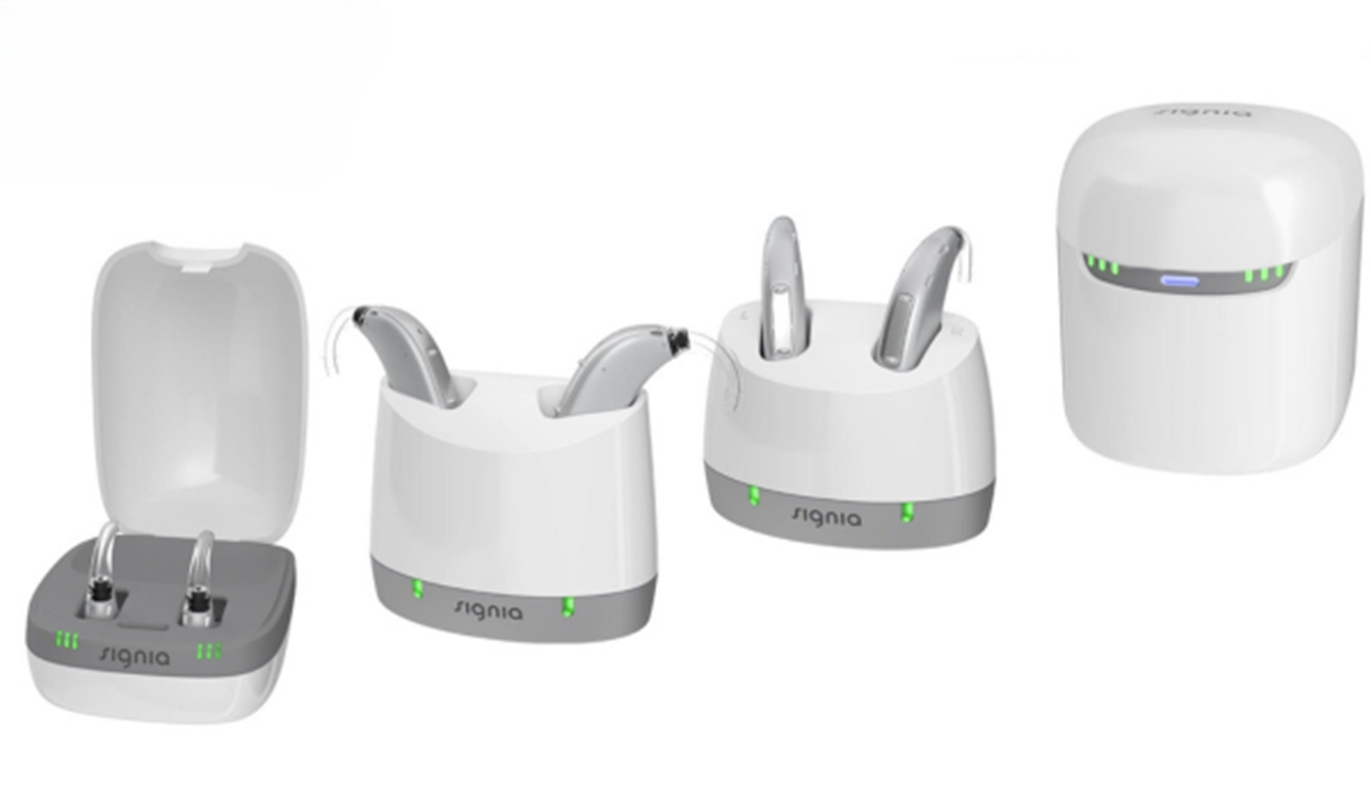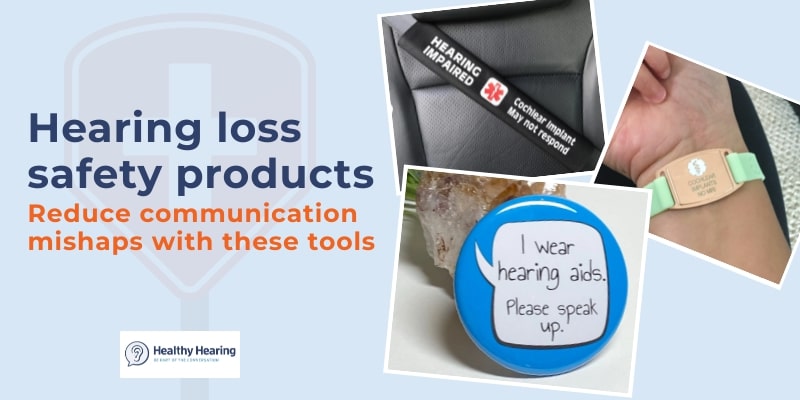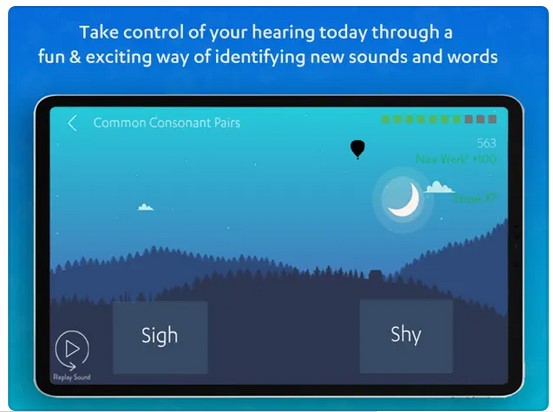Key points:
-
Clogged or stuffy ears is a common problem and rarely an indication of anything serious.
-
Common causes include earwax buildup, fluid building from ear infections, sinus pressure, and noise damage.
-
Occasionally clogged ears also can cause muffled hearing or hearing loss. This is temporary and your hearing will go back to normal once the blockage or pressure has cleared.
-
If you are experiencing lingering hearing loss or muffled hearing, visit a hearing specialist near you.
Almost everyone has experienced clogged ears at some point, when you feel extra pressure and a sense of muffled hearing. Yawning may or may not relieve the pressure, depending on what's causing the stuffiness.
Sometimes the cause is obvious, like when you have a bad cold and your head feels like it's full of snot. Other times it may be more subtle. Let's take a look at some of the more common causes of clogged ears as well as the various treatment options.
What causes stuffy ears?
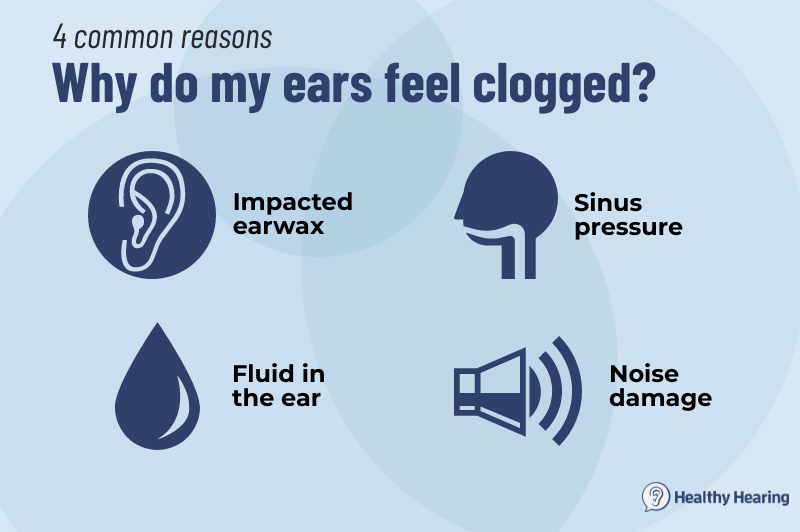
1. Fluid in the ear
When excess fluid builds up in the ear and eustachian tubes, pressure, pain, and muffled hearing can result. Allergies and upper respiratory infections can cause extra fluid (mucus) as well as swelling, making it hard to clear your ears.
One of the most common ways this happens is from a middle ear infection, also known as otitis media. Middle ear infections are more common in children, but can occur in adults as well. Although this condition usually clears on its own, it can be painful. In addition to pain in the ear, symptoms include:
- Stuffy ears
- Fluid drainage from the ear
- Dizziness or a sense of being off balance
- Fever (more common in children)
Call a doctor if the pain is severe, you notice a fluid discharge or symptoms persist for more than a day. Children younger than about six months should be seen immediately. Decongestants can help, but do not give them to kids unless approved by your doctor.
2. Impacted earwax
Normally, earwax is the body’s way of protecting the ear. Its sticky texture traps dirt and other pollutants. It also acts as a lubricant. Since it naturally falls out of the ear canal, it helps clean the ears on its own. However, it can sometimes become impacted, leading to a feeling of fullness in the ears. This is a common problem, responsible for about 12 million doctor visits a year in the US, according to an article in the Journal of the American Medical Association.
Additional symptoms can include:
- Earache
- Muffled hearing or temporary hearing loss
- Itching, odor or discharge from the ear
- Tinnitus (ringing in the ear)
Fortunately, this is easy to treat, either at home with an ear cleaning kit, or at the doctor's office via a professional ear cleaning.
3. Sinus pressure
Your skull contains several empty cavities known as sinuses. Most of the time they are easy to forget about—until something goes wrong, like a sinus infection or a bad viral respiratory infection, including COVID-19. The intense headache, tenderness and stuffy nose can make you miserable. It can also cause clogged hearing via a condition known as eustachian tube dysfunction.
When that happens, the connection between the middle ear and throat is closed, which puts pressure on the eardrums. Infections aren't the only cause, though. Allergies and airplane flying can also cause sinus pressure.
Treating sinus pressure depends on the underlying cause. See a doctor for a proper diagnosis.
4. Noise damage
If your ears feel clogged or you hear ringing in your ears (tinnitus) after a concert or an afternoon in a rowdy sports stadium, it’s likely due to excessive noise exposure. The muffled sounds you may hear after are known as temporary threshold shift. The tiny hair-like cells in your inner ear have literally been "blasted" by sound and have been shaken out of place.
Although these symptoms typically clear within two days, repeated exposure to loud noise can lead to permanent noise-induced hearing loss.

Other conditions that can cause fullness in ears
Various other conditions can make you feel like your ears are plugged up, including but not limited to:
- Inner ear conditions like Meniere's disease
- Balance disorders
- Water trapped in the ears
- An outer ear infection, also known as swimmer's ear
- Anxiety and/or panic attacks
- Traumatic brain injury (TBI)
How do I get rid of clogged ears?
Treatment options for clogged ears depend on what is causing the symptom in the first place. Some conditions can be treated at home, while others will require a visit to the doctor. Options include:
At-home remedies
- Use a warm compress to help open up the ears
- Yawn, chew, take a deep breath or use the Valsalva maneuver by holding your nose and blowing gently, the same methods that work for stuffy ears on an airplane.
- Use nasal spray or over-the-counter allergy medication
Medical treatments
- Earwax removal: If you believe earwax is the culprit, see a physician or your hearing healthcare professional. They can look into your ear canal with a special scope, and remove impacted earwax.
- Decongestants: If your ear fullness is caused by sinus congestion or a cold, decongestant medications can reduce swelling in the eustachian tubes and relieve pressure.
- Antihistamines: For ear congestion due to allergies, antihistamines can reduce swelling and combat eustachian tube dysfunction.
- Antibiotics: To help fight off an ear infection and relieve symptoms.
How can you prevent ear fullness during loud noise?
When it comes to noise exposure, prevention is the key to avoiding clogged ears. Do things like:
- Wear earplugs or other hearing protective devices when you’re involved in an activity where sound measures more than 85 decibels (dB).
- Turn down the volume on the television, car radio or any personal electronic device with which you use earbuds.
- If you can’t protect your hearing from the noise or reduce the volume, move as far away from it as possible.
When to see a doctor
If your symptoms last longer than a few days, or keep coming back, seek out medical help. Any ear pain or ear drainage should be treated promptly, especially in kids.
If you're experiencing persistent clogged ears that you suspect may be hearing loss, schedule a hearing test with a hearing professional or audiologist near you.
The above is the interpretation of Clogged Ears: Top Causes and How to Get Relief provided by Chinese hearing aid supplier Shenrui Medical. Link https://www.srmcm.com/Blog/Clogged_Ears_Top_Causes_and_How_to_Get_Relief.html of this article is welcome to share and forward. For more hearing aid related information, please visit Blog or take a look at our Hearing aids products






